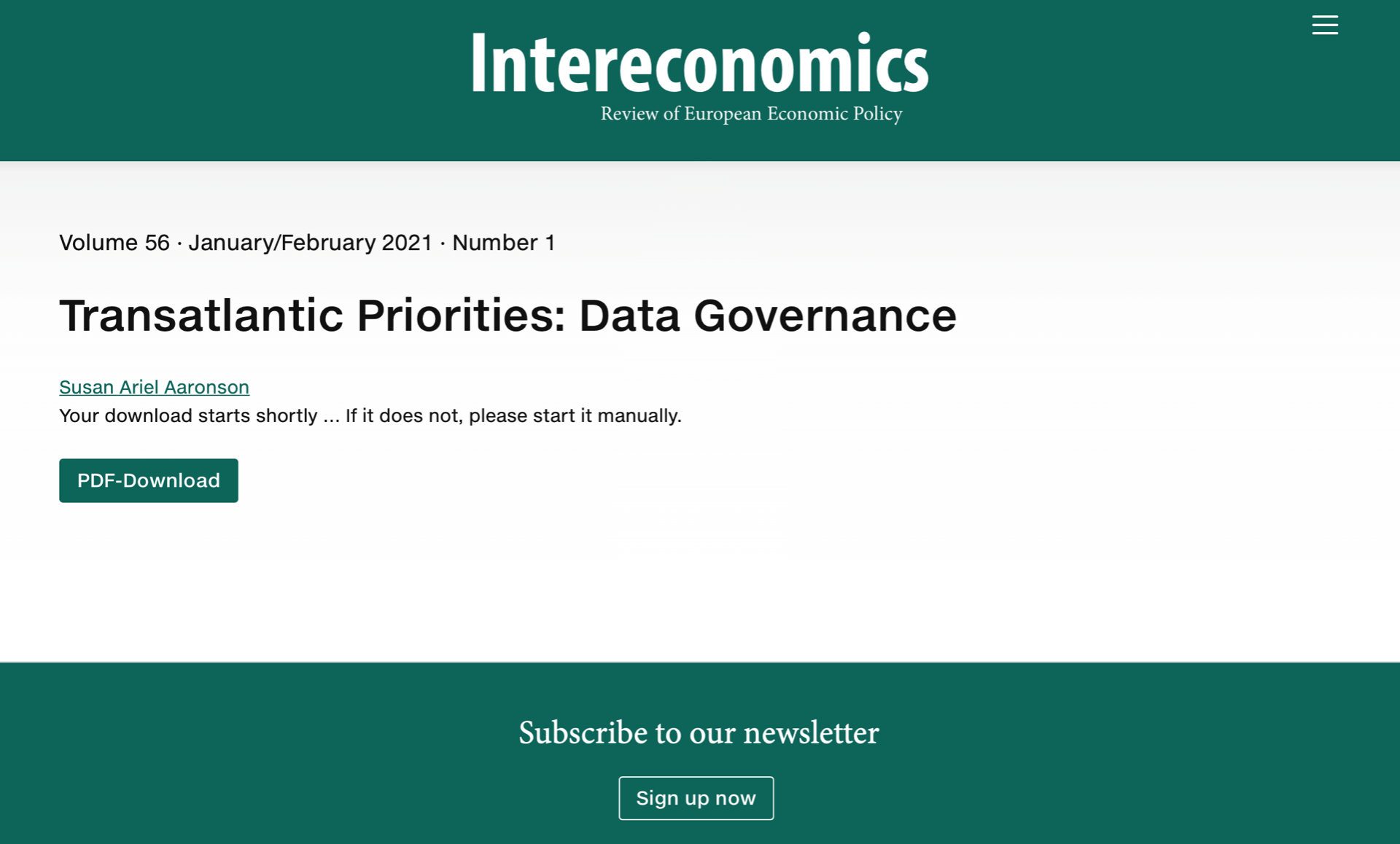Data is different from other inputs. Researchers in the public and private sectors can reuse troves of data indefinitely without that data losing its value. Individuals can use the same data for multiple purposes. They can create new products or research complex problems. Hence, data is multidimensional. It can simultaneously be a commercial asset and a public good.
Firms have long relied on data to improve the efficiency and quality of goods and services. However, today market actors also utilize data to create entirely new services, such as personalized healthcare. Data-driven sectors such as social networks and artificial-intelligence services are the foundation of today’s global economy. These sectors also enabled much of the world to function during the pandemic.
Read More Publications
The Dangers of AI Nationalism and Beggar-Thy-Neighbour Policies
As they attempt to nurture and govern AI, some nations are acting in ways that – with or without direct intent – discriminate among foreign market actors. For example, some governments are excluding foreign firms from access to incentives for high-speed computing, or...
Talking to a Brick Wall: The US Government’s Response to Public Comments on AI
April 28, 2025 Building trust in artificial intelligence (AI) is an elusive goal, especially if AI models are closed or partially open, making it difficult for users to determine if these models are reliable, fair or trustworthy. For this reason, the Biden...
US Import Tariffs Will Hurt Americans, Too
February 12, 2025 A tractor is parked beside a greenhouse in Kingsville, Ontario, Canada, February 4, 2025. A 25 percent US tariff on farm imports from Canada would be devastating for the agricultural sector (Carlos Osorio/REUTERS) US President Donald Trump views...













